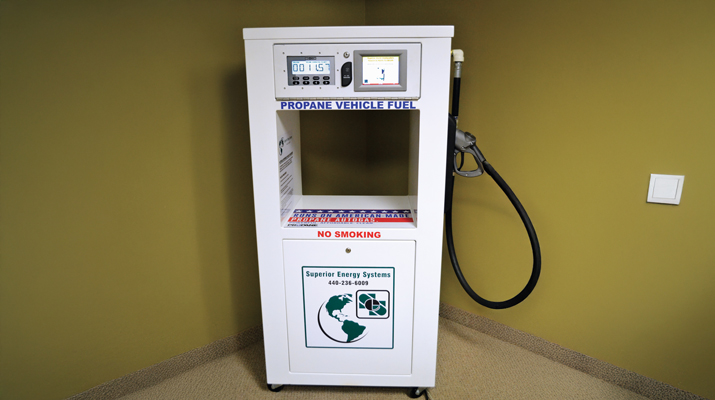Gas appliance connector lawsuit dismissed
On April 13, 2011, a fire occurred at the home of Michael Dougherty in Warren County, Missouri.

In February 2012, Dougherty sued Dormont Manufacturing and an installer of the gas appliance connector that the company manufactured.
Dougherty alleged that lightning struck near his home and traveled along a fire pit onto a Dormont gas appliance connector connected to a gas shutoff valve on a propane tank. The gas appliance connector perforated from the electrical current and leaked gas, which subsequently ignited. Dougherty claimed to have incurred over $600,000 in damages from a fire that destroyed his home.
The lawsuit, filed in the Warren County, Missouri, state court, alleged that Dormont’s gas appliance connector was defective, unreasonably dangerous in design and lacked sufficient warnings. It also alleged that the installation was negligently performed.
Dougherty carried homeowner’s insurance, in this case, with Auto Owners. In many states, Auto Owners would have brought this lawsuit. In Missouri, for various legal reasons, the case must be brought in the name of the homeowner, not the insurance company.
During the case, Dormont served Auto Owners with a non-party subpoena. In the request, Dormont sought records from Auto Owners concerning any claims that it had received from lightning strike damages to residential buildings from piping systems (not gas appliance connectors) where Auto Owners took the position that the gas piping was the cause of the fire damage, the gas piping was defective in design and the installation was done negligently.
Dormont also sought any claims Auto Owners had received from lightning strikes where the electrical system failed and/or the security system failed to properly notify local authorities.
Dormont sought records in the eight states surrounding Missouri from 2012 to 2015. Auto Owners responded to this subpoena with objections. The parties met and conferred, and Auto Owners produced the claims file for this loss with certain portions redacted. It did not produce anything else.
Dormont filed a motion to compel. The parties filed written briefs on the issue. Dormont argued that failures to gas appliance connectors from lightning strikes are exceedingly rare; otherwise, there would be numerous claims. Claims from gas piping failures may be more prevalent. Auto Owners primarily responded by arguing that the requests were unduly burdensome and not relevant to this loss.
The trial court granted Dormont’s motion to compel with certain minor modifications to the requests for records. Auto Owners then sought appellate relief called a writ of prohibition, essentially asking the Missouri Court of Appeals to overrule the trial court and not allow the discovery Dormont requested. Auto Owners lost at the Court of Appeals, so it sought relief from the Missouri Supreme Court and lost there as well, so the company would have to produce the records requested.
So, Dougherty dismissed the lawsuit in August 2021 in state court to avoid having to produce the records that Dormont requested. Dougherty then filed a suit against Dormont in federal district court in 2022. Dormont then served a similar non-party subpoena to Auto Owners. This subpoena ultimately resulted in a motion before the court to compel the documents Dormont requested.
The district court provided an analysis of the competing interests in the case. It is important to note that the court did not look to what was decided in the state courts of Missouri. The law of the case would provide that a court reviewing this motion to compel would look to the state court decisions and follow suit. But the law of the case does not apply where state court rulings are from a lawsuit separate from the federal lawsuit. So, the federal court had to make its own records on the approximate document requests Dormont was making to Auto Owners.
In the end, the court ordered Auto Owners to produce materials related to gas piping failures from lightning strikes that resulted in damage claims, as well as claims related to electrical system and security system failures as noted above, within a similar geographic region and from 2012 to 2015.
As a result of this ruling, Auto Owners raised the white flag and voluntarily dismissed the lawsuit against Dormont. The insurance company may have dismissed the suit because producing these other claims could have defeated its case against Dormont. Auto Owners also argued the cost to gather this information was unduly burdensome, so that may also have been a reason why it dismissed the lawsuit.
In the end, this case was a huge win for Dormont, and it may provide a roadmap for a similar strategy in other cases.
John V. McCoy is with McCoy, Leavitt, Laskey LLC. His firm represents industry members nationally. He can be reached at jmccoy@MLLlaw.com or at 262-522-7007.
Homepage featured image: izzetugutmen/iStock/Getty Images Plus/Getty Images
















